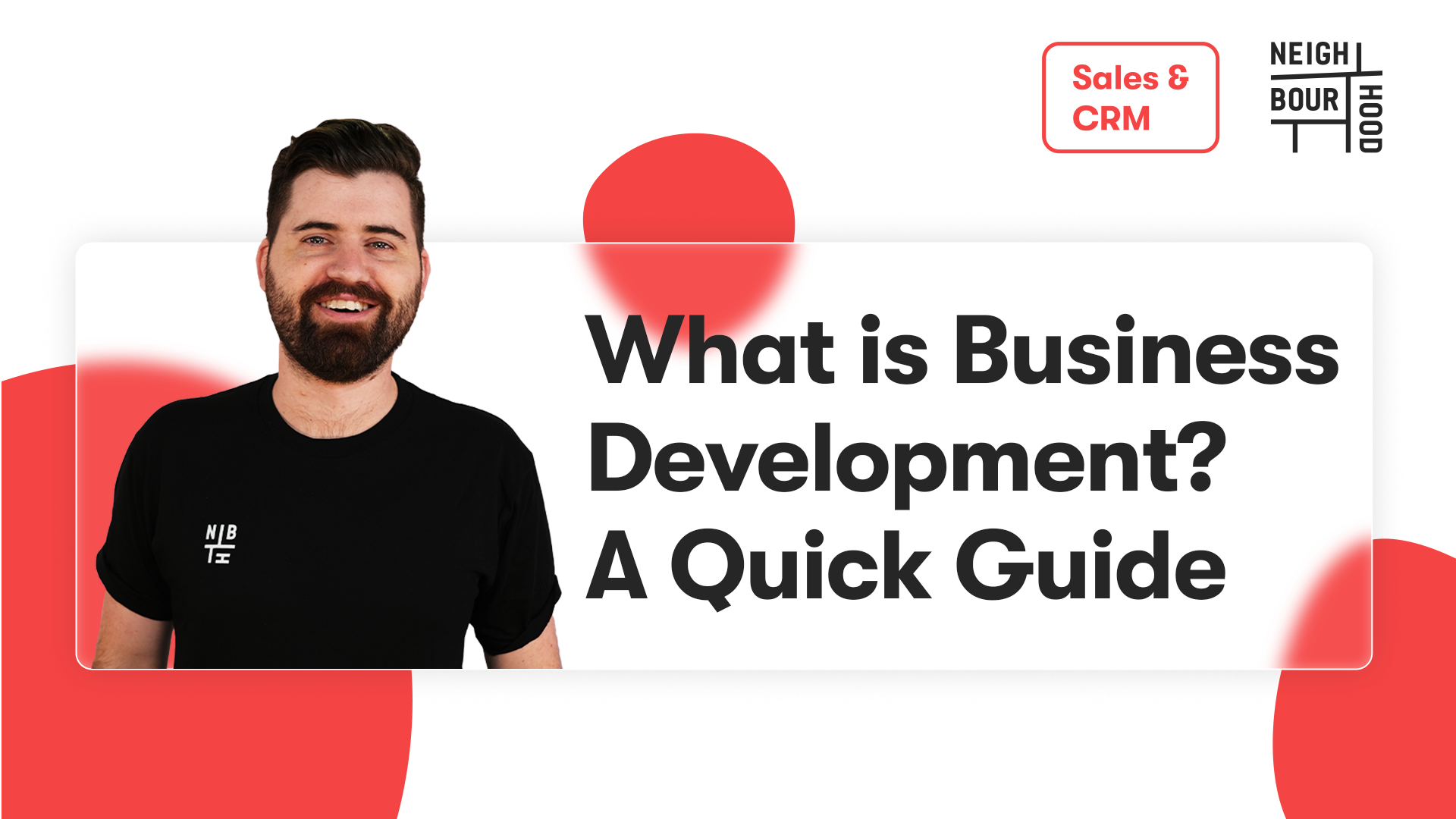Business development (BD) is the process to identify, nurture and close the deal with new clients and business opportunities to help drive your own business growth and profitability. Although business development is similar to sales and the sales process, it differs slightly.
To define business development, it is "the creation of long-term value for an organisation from customers, markets, and relationships." This could include looking for companies to partner with or closing large-scale distribution deals that help drive growth and profits on a national and global scale. While sales can be quite short-term and team members more interested in locking down every deal possible to hit their goal, a business development strategy looks at everything including ideas, initiatives and the activities undertaken by your company to make a better business for the future.
BD isn't just a sales tool, it involves marketing, it involves customer service and it involves forward-thinking strategy. While many will pigeon-hole it to be purely a sales role and you can see why some would believe that, it is so much more and means understanding your customers, the markets you operate in and building relationships with key stakeholders.
Customers
This is a given, you can't own, run or work in a business that has no customers. They are the lifeblood of business and without them you're a magician trying to pull money out of thin air. Business development is about understanding your businesses buyer personas and your customers. It's about where to find them, their pain points, how you can solve their issues and understanding who your best customers are and who the worst customers are, to then strategically target businesses and markets who fall into this category.
Markets
Markets can be broken down into two categories, geography based markets such as country or region and psychographic and demographic markets such as gender based or lifestyle traits. As far as geography based markets, this part of business development has evolved with the growth of the internet and technology. On the larger scale, market research is still vital when expanding into markets but with the age of technology it has become much easier. In particular for small businesses who can expand into new geography markets with ease by remaining local and shipping worldwide through an online store such as Shopify. For big business, technology has meant researching and finding information about a potential market has become even easier with everything you need to make an educated decision available at the click of a button.
Understanding markets also means looking at psychographic or demographic markets. This ties in with understanding your customers and identifying opportunities to reach new customers through product development. It's the business development teams role to identify the opportunities to adapt and reach new consumers. For example, think of a female clothing boutique, obviously their target market is females but it would be a business development manager's role to identify if there would be long-term value for the organisation to expand their offering into the male clothing market.
Relationships
The age old phrase of it's not what you know, it's who you know could not be more true for BD. A business development manager should be the corporate relationships manager within a business. When a major deal is closed, the job of a BD manager is just starting to ramp up and they begin looking to the future. Identifying key relationships to build with like-minded businesses for long-term value and growth is vital in BD.
Building, managing, and leveraging mutually-beneficial relationships that are based on trust and respect is fundamental for long-term value and growth for business. Relationships with corporate partners, customers, employees, media etc. are all critical to the success of any business development strategy and it's the role of the business development manager to nurture and leverage all of these with the future and growth of the business in mind.
BD doesn't just look at closing a deal, it looks beyond that and thinks long-term relationships and how you can build a mutually beneficial relationship with your customers and with other businesses. While the end goal is always making deals, selling more product and driving profitability, business development looks at sales through the eyes of marketing, customer service and strategy.




